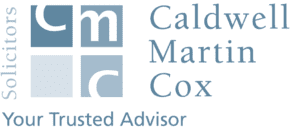I am just here to sign
by Ryan Ingleton | June 30, 2025| Latest News

Independent Guarantor Advice – “I am just here to sign”
Becoming a guarantor involves making a legal commitment to repay a loan if the primary borrower fails to do so. This is often an action undertaken to support family members, friends, companies, trusts or self-managed superannuation funds. A personal guarantee is a legally binding contract with the lender, and it carries significant financial and legal responsibilities.
If the borrower fails to meet their loan obligations and is in default of the loan, the guarantor becomes liable for the debt. This includes the amount specified in the guarantee, whether limited or unlimited, and potentially all associated legal and enforcement costs authorised under the guarantee. Importantly, guarantors may not receive prior notice of the borrower’s default as the lender is not required to notify the guarantor of the borrower’s default. The first correspondence the guarantor receives may be the lender calling in the debt.
Guarantor Advice
A Guarantor Advice Certificate (GAC) is a legal document confirming that the guarantor has received independent legal advice and understands the implications of the guarantee. It does not, however, obviate the responsibilities of any parties under the loan agreement or provide the lender with an excuse for not completing proper due diligence on behalf of the borrower.
Statutory Declarations of advice, Acknowledgments of Advice and signed Guarantees are often required by lenders to ensure the guarantor is fully informed of their obligations under the guarantee, thus reducing future legal disputes when a claim is made. Common scenarios where CMC provides guarantor advice are:
(i) Parents guaranteeing a child’s home loan;
(ii) Loans to family trusts or companies; and
(iii) Loans to self-managed superannuation funds.
Guarantor’s Security
In mortgage scenarios, guarantors often use the equity in their family home as security, whereby a mortgage is registered on the title against the guarantor’s asset. This is the most common form of security we see being proposed by the guarantor, with the guarantee stipulating its limit as either:
(i) Limited: liability is capped at a specific amount or portion of the loan; or
(ii) Unlimited: the guarantor is liable for the full loan amount.
Multiple Guarantors
A loan can have more than one guarantor. In such cases, the guarantee is typically ‘joint and several,’ meaning the lender can pursue all guarantors together or any one of them individually for the full limit of their guarantee.
Can I Sell the Secured Property?
Selling a property used as security for a guarantee can be complex. Generally, the loan must be repaid in full or in part, or alternative security must be provided. Some lenders may allow the guarantor to use the sale proceeds to pay down the guaranteed amount, replace the property with a cash term deposit as security or transfer the guarantee to a new property. This requires lender approval and an updated Guarantor Advice Certificate
We often have clients ringing and saying, ‘I just need you to sign this letter today,’ not understanding their obligations under the guarantee. Acting as a guarantor is a serious financial commitment with potential long-term consequences and restrictions.
It is essential to understand the full scope of your obligations and seek independent legal advice before signing any guaranteed documents. For more information or to arrange a consultation with our experienced commercial team, call us on 4651 4800.
